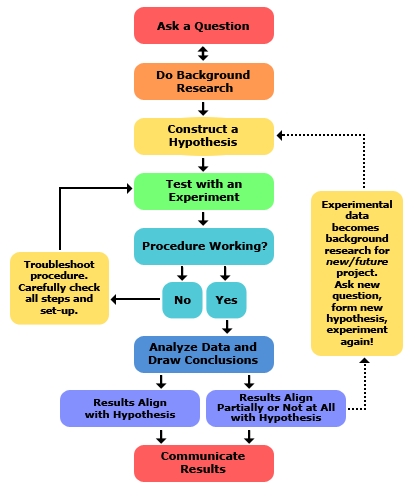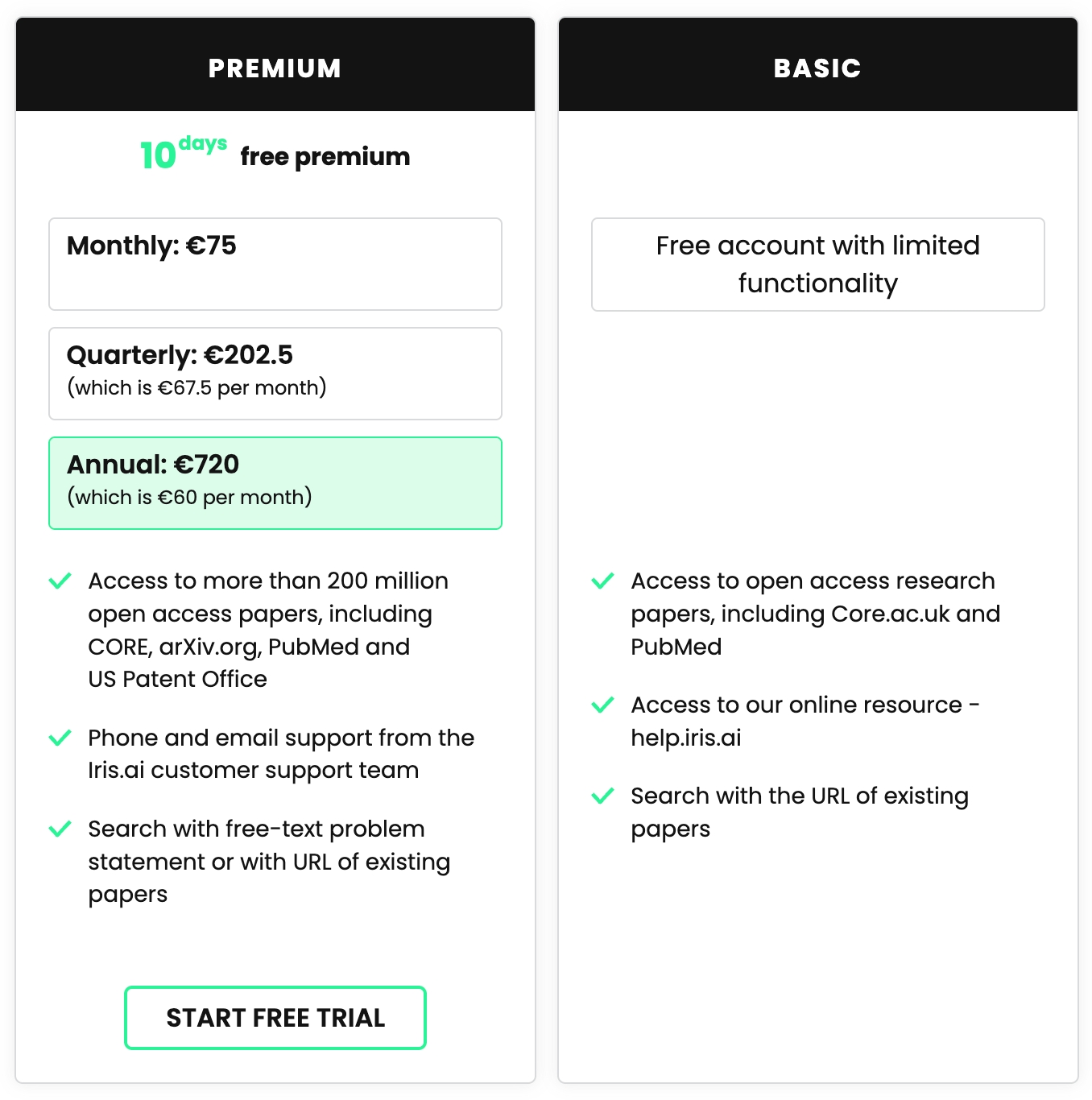Iris.AI
Author: Harsha Gullapalli
Date: March 13th, 2023
Table of Contents
App Summary
Features
Use Cases
Pricing
Social Links
Notes from the Author
1. App Summary
Iris.Ai is an ai app that utilizes neural network technology to help researchers process and extract insights from a large number of scientific papers and patents. It helps find and organize information, summarize key points, and even automate some tasks.
2. Features
To understand the features of Iris.Ai, a basic understanding of the scientific research process is necessary. The below process diagram shows the steps involved:

Iris.ai helps with the second step, which is background research. With the ever-increasing scientific research repositories, searching, filtering, analyzing, extracting, and summarizing information becomes quite a task. AI can play a crucial role in significantly cutting down the amount of time needed for this step.
With that being said, the following features are offered by iris.ai.
Content-Based Search: Ability to automatically search and categorize research papers based on one or more papers/patents of your choosing.
Context Filtering: Creating custom context descriptions of approximately 50 to 100 words each allows for efficient filtering of research papers. Each description is matched against every article in the content list and can be used for inclusion or exclusion purposes. This feature allows for a Venn diagram-like approach to filtering information and simplifying the research process.
Data Filtering: Data filtering is a way to find specific information from a large group of documents. The official website gives the following examples, "You might want to find out which of the 500 documents in front of you talks about steel with a tensile strength between 600-650 MPa. Or, you might want to know if any of the papers in PubMed talk about Ibuprofen causing nausea in more than 5% of people. With advanced filtering, you can find the exact information you need and filter out the rest."
Data Extraction: Fetching and linking all the key data from research documents into a tabular, machine-readable, systematic format. Iris.ai claims to cut the time for this by 99% or more and with a 90% accuracy.
Machine-generated Summaries: Summarizing one or more scientific documents with a customizable word count.
Document-set Analysis: The Workspace's document set analysis is a tool that provides an overview of the content of a set of documents (up to 20,000 docs). Users can see the literature list's topic groups and the most important and unusual words and their synonyms. This aids in selecting groups for inclusion and exclusion, without the risk of overlooking relevant documents.
Monitoring: By setting up automated searches at regular intervals, users can receive notifications when new articles fitting their specific inclusion/exclusion criteria, such as clinical data, become available. This tool is particularly useful for fields requiring ongoing reviews of relevant literature.
Use Cases
For this section, I’ll be focusing particularly on how DAOs can use the tool. The central use case for DAOs is ‘Informed Decision Making’.
Example 1: A DAO focused on climate activism has to allocate a significant amount of funds from its treasury to particular causes. How will they decide on these causes? The fund distribution team can use Iris.ai to quickly go through numerous research papers and their summaries, helping them identify the most important factors related to climate impact. With this knowledge, the community can then determine how to distribute the funds effectively.
Example 2: A DAO founding team aims to make crucial decisions regarding tokenomics. How should they proceed? The founding team can utilize Iris.ai to obtain a comprehensive overview of the available research from various fields, such as psychology, tokenomics, DAO-related ethics, and more. Next, they can refine their research by excluding irrelevant studies and incorporating pertinent ones. Finally, they can distill and summarize the essential factors involved in making informed decisions on tokenomics.
Pricing

Social Links
Notes from the Author
Iris is an extremely useful tool that can save long hours of manual work in the field of research. Considering the subscription price, it makes the most sense for academic researchers and legal professionals as opposed to casual science enthusiasts.
Last updated